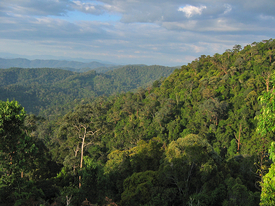Archive detail
The Nagoya Protocol — a possible obstacle to research cooperation
June 1, 2018 |
Southerly countries are rich in genetic resources. The companies that exploit this natural treasure commercially are very often from the northern, developed world, however. The Nagoya Protocol was created in order to ensure fair use of genetic resources and appropriate compensation. It regulates the handling of genetic resources by companies, but also for research purposes. A group of ethicists and scientists from the University of Zurich and Eawag now believe that the original aims of the agreement are being jeopardised. In an opinion article in the journal “Nature Ecology & Evolution”, they note that in most countries the same rules are used for non-commercial research projects as for profit-oriented projects of companies: “The approval process can be so complex that researchers from the north can shy away from joint projects with colleagues in the south,” warns Florian Altermatt from Eawag. This can mean that research with the potential to benefit developing countries is not able to go ahead. The researchers are thus appealing to these countries to introduce a simpler approval process for non-commercial projects.
Publication
Photos
Tropical rainforest in Indonesia
(Source: commons.wikimedia.org)
National park in Malaysia
(Source: Vladimir Yu. Arkhipov, Arkhivov)



